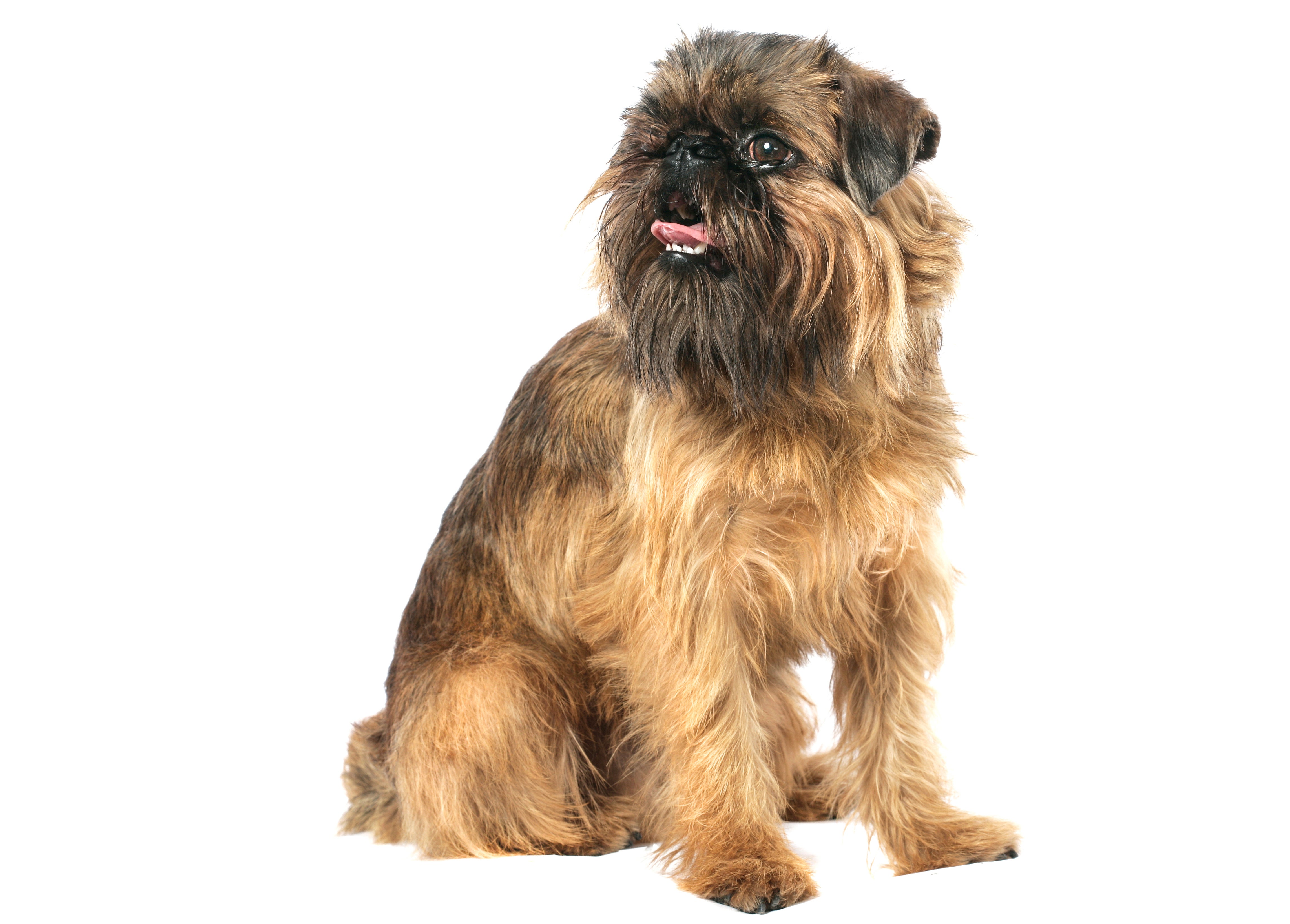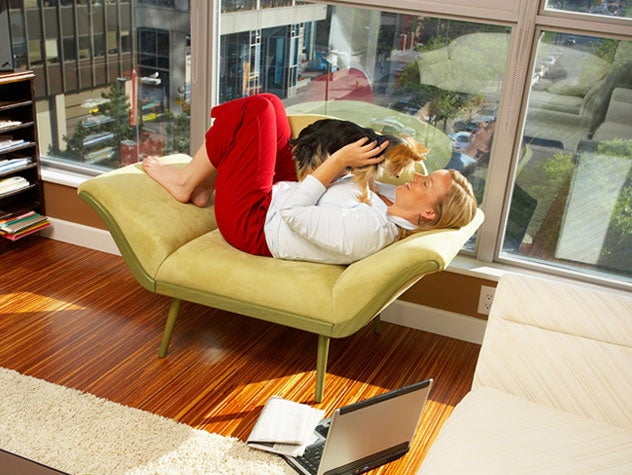Brussels Griffon
Pint-sized yet powerful, the Brussels Griffon is a square-proportioned and compact dog. They move with purpose and hold themselves with their heads high, brimming with self-confidence. A keen and open expression gives the dogs the look of a human. The coat can be rough with wiry hair that’s longer around their heads or it can be short, smooth, and glossy.
Breed characteristics carousel
Learn More
Need to Know
- Dog suitable for non-experienced owners
- Basic training required
- Generally healthy breed
- Enjoys active walks
- Small dog
- Require regular grooming
- Requires frequent grooming
- Chatty and vocal dog
- Barks and alerts to visitors/anything unusual
- Gets along with other pets with training
- May need additional supervision to live with children
- Needs a small yard or can happily live in the city
- The breed comes in two types of coats, coarse and smooth
- Known for their monkey-faced appearance
- AKC Registered Breed

Personality
Spunky with a confidence that is bigger than their bodies, Brussels Griffon dogs lead a life full of zest and gusto. They are bold, playful, funny, and clever dogs that get along well with others. They bark and are known to climb. Families that want a funny and entertaining companion dog in a compact size will fall in love with the Brussels Griffon breed.
The Brussels Griffon dog is from Belgium, where they likely were developed from the Affenpinscher and Belgian street dogs. These adorable yet tenacious street dogs guarded cabs with their cocky and confident personalities, helping fend off burglars. In the late 1800s, the breed was crossed with the Pug, which is how the Brussels Griffon gets its distinct face. Nobility fell in love with the dog in the early 1900s, making them popular in Belgium and beyond. While Griffon means “wiry,” there is a smooth-coated variety.
Ideal owners of the Brussels Griffon dog will have patience and a sense of humor to deal with such a determined little dog. They should be active and energetic and ready to commit to training, especially since the Brussels Griffon can be slow to house train. These dogs need a high level of mental and physical stimulation to tire them out, so owners who can devote time and energy to their well-being are the best fit.
While small, the Brussels Griffon dog is active, especially mentally. They are always ready for an adventure, especially if it’s with their owners. Free running, puzzles, toys, and leash walks should all feature in their daily routine.
Because the Brussels Griffon is so small, they are highly adaptable to city living so long as they have regular access to the outdoors, especially space to run. They do well in homes with yards that should be fenced-in and secure—they can be escape artists if left to their own devices!
Griffon means “wiry,” alluding to the rough coat of the dog. Brussels Griffon dogs need regular combing through their hair and potentially could benefit from professional grooming several times a year. Smooth-coated Brussels Griffon with short hair only need the occasional brush to remove dead hair. Both coats do shed.
High energy and lively, the Brussels Griffon dog breed needs physical and mental stimulation to be satisfied. They enjoy activities that you might expect from bigger dogs, such as running, hiking, agility training, trick training, and fetch. Mental stimulation is very important to exhaust their big brains. They are eager to please but might need a little motivation through positive reinforcement. Owners will need to have patience and a sense of humor to consistently train the Brussels Griffon.
If the Brussels Griffon dog is socialized often and early, they can make good family pets for families with older children or no children, especially as they love being involved in family activities. They are affectionate and loving dogs and can be protective of their homes and people. Their high energy levels might not be the best fit for families with small children.
The cost of a Brussels Griffon from a breeder is significantly more than the cost of adopting one from a local shelter or rescue. The adoption fee usually covers additional items such as spaying or neutering, vaccines, and microchipping.

Learn more about feeding and caring for your Brussels Griffon on Purina.
Did You Know?
- The smooth-coated version of the Brussels Griffon is called a Petit Brabancon.
- The Brussels Griffon dog was originally bred to protect cab drivers in the dog’s native Belgium.


